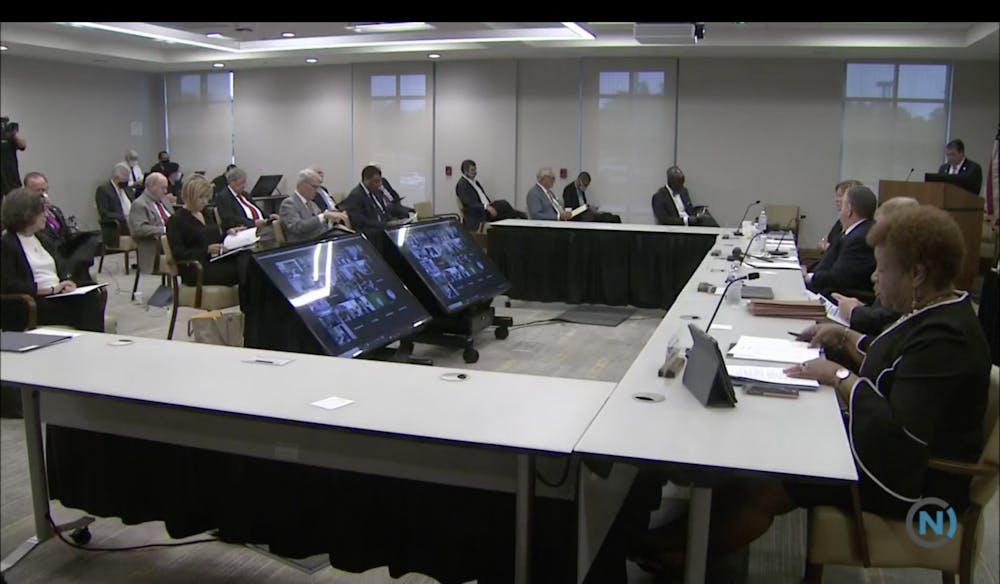The UNC Board of Governors met Thursday, and after 45 minutes of debate, approved a change to the chancellor search process that will allow the UNC-System president to personally designate up to two individuals as candidates for chancellor.
Under the new policy, at least one of the candidates referred by the UNC-System president must become a finalist for the position — even if campus search committees disagree with the choice.
Prior to Thursday’s change, a chancellor search committee led by the school’s Board of Trustees would conduct an independent search for candidates and send at least two finalists to the UNC-System president. The president would then choose a final candidate, which must be approved by the BOG.
UNC-System President Peter Hans, who first introduced the policy change in July, explained his reasoning for it at Thursday’s meeting.
“My thinking about this was an opportunity for an organization our size to engage in some succession planning,” Hans said. “I think an organization of our size is well-served by cultivating internal talent, with professional development at every level of the organization, and to actively seek external leaders with proven abilities to really prepare a diverse group of leaders for these roles.”
Hans said the president is not obligated to add names in searches where a strong applicant pool already exists, but is able to add up to two. All candidates referred by the president will go through the same interviews as the other candidates, he said.
The original proposed change at Thursday’s meeting stated that the president could submit up to two candidates with both automatically becoming finalists. But after a “friendly amendment” suggested by board member Doyle Parrish, the language of the policy was changed to state that campus search committees will only be required to send one candidate back as a finalist in addition to their own names.
Chairperson Randy Ramsey clarified that if the president only sent one candidate to the campus search committee, that candidate would automatically move on as a finalist.
The BOG expressed mixed views on the change, with several voicing concerns that it would give the president too much power, allow university boards of trustees to be bypassed and lead to fewer applicants who see the appointment outcome as being predetermined.



